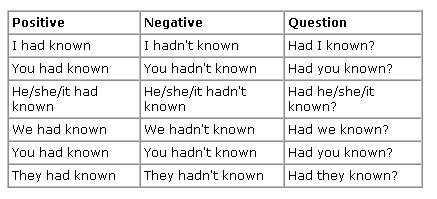-
(单词翻译:双击或拖选)
本单元是关于手表真相的对话
Police 1: Could you just sign here please?
Tim: Yeah, sure. Can I do anything else to help?
Police 1: I think we have everything we need. We've been watching your boss, I mean, your ex-boss, for some time, and we've long suspected that he was involved in a counterfeiting1 ring. With the statement you've just given us, the CCTV evidence, and Mrs Hall's statement too, I think we've got enough to secure2 a conviction3.
Tim: Mrs Hall?
Police 2: Janet Hall: the rather posh customer who bought a watch from you just before Christmas. She recognised almost immediately that it was a fake4, so she came to us straight away. But she was adamant5 that you couldn't have been responsible. She said something about some lost money that you returned to her.
Tim: Oh yeah, that. But when you interviewed me the other week you really seemed to think that I'd stolen the watches.
Police 2 : Just doing our job, sir.
Vocabulary 词汇
a counterfeiting ring 造假团伙
group of criminals who work together to make and distribute fake products or fake money
statement 陈述;声明;供述;交代
a written account of events or facts, usually made by a witness to a crime, for use by the police in a court of law
CCTV 闭路电视监视系统
closed-circuit television; security6 cameras
to secure a conviction 确定某人有罪
to make sure that somebody is found guilty of a crime, in a court of law
posh (adj) 时髦的;优雅的
elegant7, fashionable, wealthy and upper class
adamant 坚决的
determined8, insistent9; will not be persuaded to change an idea or belief
本单元的语言点是过去完成时,过去完成时表示过去的过去,请看下面的解释和例句
Past perfect
Past perfect - form 过去完成时的形式
The past perfect is made from a subject, 'had' and the past participle (the third form of the verb).

Past perfect - meaning & use 过去完成时的意义和用法
The past perfect is used to make it clear that one event happened before another in the past. In episode10 91 of the flatmates, Tim says:
"But when you interviewed me the other week you really seemed to think that I had stolen the watches."
Tim is talking about 2 events which both happened in the past: the police interview, and the theft of the watches. Because the theft of the watches happened before the police interview, Tim uses the past perfect: 'I had stolen'.
It does not matter which event is mentioned first - the tense makes it clear which one happened first. Tim could have said:
"But you really seemed to think that I had stolen the watches when you interviewed me the other week."
More examples:
I didn't have any money because I had lost my purse.
Tony knew Istanbul so well because he had been there several times.
Had John ever studied Japanese before he moved to Japan?
She only understood the book because she had seen the film.
We couldn't get a table because we hadn't booked in advance.
Adverbs with the past perfect 与过去完成时一起使用的副词
Adverbs such as: always, only, never, ever, still, just, etc. can be used with the past perfect. They are usually placed between 'had' and the past participle.
The train had just left when I arrived at the station.
She had just left the room when the teacher arrived.
She had only met her husband once when she married him.
Marco had never needed to speak English until he moved to New York.
 收听单词发音
收听单词发音
1
counterfeiting

|
|
| n.伪造v.仿制,造假( counterfeit的现在分词 ) | |
参考例句: |
|
|
|
2
secure

|
|
| adj.无虑的,安心的,安全的;adj.牢靠的,稳妥的;vt.固定,获得,使...安全;vi.(海上工作人员)停止工;vi.(船)抛锚,停泊 | |
参考例句: |
|
|
|
3
conviction

|
|
| n.确信,坚定的信仰;说服,信服;定罪 | |
参考例句: |
|
|
|
4
fake

|
|
| vt.伪造,造假,假装;n.假货,赝品 | |
参考例句: |
|
|
|
5
adamant

|
|
| adj.坚硬的,固执的 | |
参考例句: |
|
|
|
6
security

|
|
| n.安全,安全感;防护措施;保证(金),抵押(品);债券,证券 | |
参考例句: |
|
|
|
7
elegant

|
|
| adj.优美的,文雅的,简练的,简结的 | |
参考例句: |
|
|
|
8
determined

|
|
| adj.坚定的;有决心的 | |
参考例句: |
|
|
|
9
insistent

|
|
| adj.迫切的,坚持的 | |
参考例句: |
|
|
|
10
episode

|
|
| n.(作品的一段)情节,插曲,系列事件中之一 | |
参考例句: |
|
|
|

















